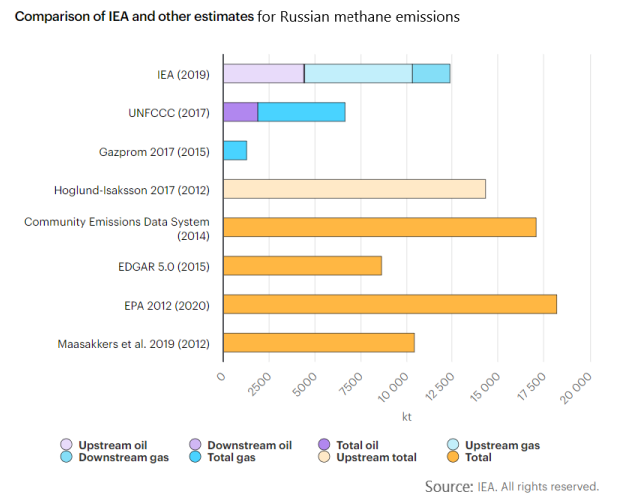We need to get serious about methane leakage. Natural (fossil) gas has lower CO2 emissions per unit of energy than coal, but if a few % of it escapes to the atmosphere as methane, they're already equal.
European gas infrastructure companies are serious about keeping methane leakage very low, but the main problems seem to be in exploration and production regions.
Last time I checked, the EU still relied on self-reporting by the source countries of its natural gas. Most of our gas comes from Norway and Russia. Russia reports very low methane leakage, but independent estimates show a different picture.
Recently, methane monitoring by satellites has greatly improved. Time to start relying on that instead of self-reporting. Here's a report on Russia:
Satellites reveal major new gas industry methane leaks https://reut.rs/2Be5CU3
Satellites reveal major new gas industry methane leaks https://reut.rs/2Be5CU3
And look at what BP, actively reducing methane leakage, claims:
"Less than 0.2% of the methane BP produces is lost as emissions, much better than the industry average of 3.2%." https://www.energyvoice.com/otherenergy/207433/wave-of-drones-and-cameras-to-help-bp-snuff-out-methane-leaks/
"Less than 0.2% of the methane BP produces is lost as emissions, much better than the industry average of 3.2%." https://www.energyvoice.com/otherenergy/207433/wave-of-drones-and-cameras-to-help-bp-snuff-out-methane-leaks/
Of course, that 0.2% needs to be verified too. And the 3.2% is a stark warning about the scale of the problem in the industry as a whole.
Globally, it's a major and growing component of our greenhouse gas emissions:
"Global methane levels soar to record high
Annual emissions of the greenhouse gas have risen by almost 10% in the past two decades, driven by agriculture and the gas industry." https://nature.com/articles/d41586-020-02116-8
"Global methane levels soar to record high
Annual emissions of the greenhouse gas have risen by almost 10% in the past two decades, driven by agriculture and the gas industry." https://nature.com/articles/d41586-020-02116-8
I think we should start to track the *measured* methane leakage in the countries we imports our natural gas from, including those in LNG supply chains. And attach consequences to that. Fits well with EU plans for a carbon border adjustment for greenhouse gas emissions.
Indications are that methane leakage in well-managed and monitored natural gas supply chains can be kept to a few tenths of a %. Which would indeed make it a lot better than coal. But then we need to make sure that's what we get.
In a few decades, we need to be at net-zero greenhouse gas emissions, globally. Then there's no role for unmitigated natural (fossil) gas anymore. Renewable gases like biomethane and green hydrogen will still play an important role, in our view.
For biomethane, methane leakage in the supply chain has to be minimized as well. But if done right, it can also *reduce* methane leakage, e.g. from manure. And in the end, biomethane with carbon capture and storage is one of our options for negative emissions.

 Read on Twitter
Read on Twitter


